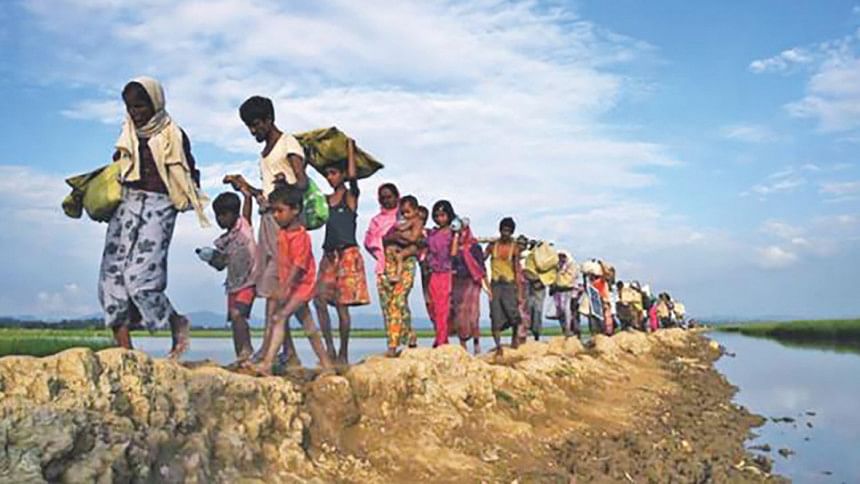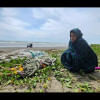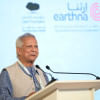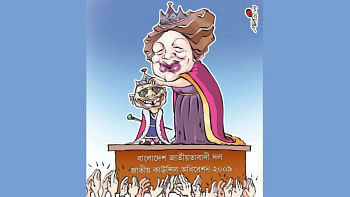Rohingya Repatriation Attempt: Doomed to fail again?

The second attempt to start repatriation of Rohingyas to Myanmar today may turn out to be futile, as hardly any refugees seem to be willing to go back.
“We are good here. If we are to go there [to Myanmar], we must have citizenship and the right to freedom of movement,” said Lalu Majhi, a Rohingya leader, echoing the views of a number of Rohingyas at Shalban camp in Teknaf.
Some Rohingyas, on condition of anonymity, said they had told the UNHCR they would not go back to Myanmar if their demands were not met.
The demands are trying those who killed and tortured Rohingyas and drove them out of their land; ensuring citizenship and security of Rohingyas; giving back their land and properties; and protecting all fundamental rights of Rohingyas in Myanmar’s Rakhine state.
They argue that the situation in Rakhine is not safe and they don’t have any guarantee of citizenship, freedom of movement and recognition of their ethnic identity in Myanmar where they have been discriminated against for decades.
As part of the latest repatriation plan, 235 Rohingya families were privately consulted by the UN refugee agency, United Nations High Commissioner for Refugees (UNHCR), in association with the officials of the Refugee Relief and Repatriation Commissioner (RRRC) over the last two days, but it could not be confirmed if any of the families had agreed to return.
“The consultation with the families has been recorded. These files will be sent to the higher authorities of the government. At the same time, the consultation will continue,” RRRC Mohammad Abul Kalam told The Daily Star yesterday evening.
Asked if the repatriation would start today, he did not give a direct answer. “We are fully prepared. It can start anytime,” he said.
Before any repatriation takes place, refugees are taken to transit camps and kept there for two to three days, but as of yesterday, no Rohingya was taken to any of the two transit camps -- one at Keruntoli in Teknaf and the other in Ghundhum border area in Naikkhangchhari of Bandarban.
The process was announced by Myanmar’s Foreign Ministry spokesperson Myint Thu on August 15 and scheduled to begin today.
Myanmar had cleared the names of 3,450 Rohingyas from a list of 22,000 plus Rohingyas sent by Bangladesh.
In early August, Bangladesh provided the approved list to the UNHCR in Dhaka and sought its assistance in assessing their willingness to return to Myanmar.
Accordingly, UNHCR and RRRC officials conducted an “intention survey” on those listed, although it could not be ascertained how many took part in it.
Diplomatic sources said China, which wants a bilateral solution to the Rohingya crisis, is mediating the repatriation process.
‘A SECRET LIST’
Nearly 700 Rohingyas of camps 24, 26 and 27 in Shalban of Teknaf have signed a statement expressing concerns at the sudden repatriation plan made without their consultation.
“We are very concerned about how this secret list of names was created and why we are included in it. We never volunteered [for] our names to go on the list,” said a statement prepared by the community leaders of the camps.
The Daily Star has obtained a copy of the statement.
It said Rohingya leaders met a delegation from Myanmar and ASEAN countries in July and demanded that Rohingya representatives be engaged in any repatriation dialogue. The Myanmar delegation agreed to meet again in two months to continue the talks.
“While we were preparing for it [the talks], suddenly Myanmar and the UNHCR started their own repatriation plan without consulting us,” said the statement.
“We want to make it very clear to the UNHCR, ASEAN and the governments of Myanmar and Bangladesh that there will be no repatriation without talking to us first,” it said.
Bodirul Islam, a Rohingya leader from camp 26, said the situation in the Rakhine State right now was not safe for their return.
“Clashes between the AA [Arakan Army] and Myanmar army is still going on. So, it is not safe for us to go there now,” said Baron Roshid of camp 26.
Another leader, Nosima, from camp 26, said Rohingya women had been raped and killed. “We need security. Without security we will never go back.”
“We need a real guarantee of citizenship, security and promise of returning our original ancestral lands. We must talk to the Myanmar government about these before repatriation,” said Md Islam.
The Rohingyas raised similar concerns and demands even when the first round of repatriation was scheduled to begin on November 15 last year, a year after Bangladesh and Myanmar signed a bilateral deal in this regard.
To help Myanmar create conditions favourable for the Rohingyas to return, the UNDP and UNHCR signed a tripartite deal with Myanmar in June 2018, nearly a year after 740,000 Rohingyas fled military atrocities in Rakhine, which was described as having “genocidal intent” by UN independent investigators.
The UN still maintains that the situation there is not right for repatriation.
CALLS TO SUSPEND REPATRIATION
Non-government organisations and human rights bodies have asked the Myanmar and Bangladesh governments to suspend plans to repatriate Rohingya refugees until they can ensure an atmosphere conducive to a safe and voluntary return.
“Myanmar has yet to address the systematic persecution and violence against the Rohingya, so refugees have every reason to fear for their safety if they return,” said Meenakshi Ganguly, South Asia director of Human Rights Watch.
“Many Rohingya have said they would like to return to Myanmar so long as they don’t suffer the same abuse, indignities, and atrocities they have endured in the past,” Ganguly said.
Therefore, Bangladesh should not join this “dangerous rush” to send refugees back to where the conditions might force them to flee again, she said.
“We know that thousands of Rohingyas back in Myanmar are still in detention camps,” one refugee told Human Rights Watch, referring to an estimated 125,000 Rohingyas who have been confined to open-air camps in central Rakhine State since 2012.
“If those people are released and return to their villages, then we will know it is safe to return and we will go back home.”
Sixty-one NGOs also made similar states. These include Asian Forum for Human Rights and Development, Concern Worldwide, Catholic Relief Services, ActionAid, Danish Refugee Council, Adventist Development and Relief Agency International, Action Contre la Faim France, World Concern, Oxfam, International Rescue Committee, Save the Children and World Vision.
It said discriminatory policies in Myanmar meant that Rohingya communities in Rakhine continue to face severe movement restrictions, as well as limited access to education, healthcare, and livelihood opportunities.
Consultation with displaced communities is limited, and they remain unable to return to their original communities or another location of choice, the NGOs said in a statement yesterday.
“Achieving durable solutions requires the Myanmar government to address the fundamental issues of equal rights and ensure that all communities in the Rakhine State can live in safety, access basic services and pursue livelihoods opportunities,” it added.

 For all latest news, follow The Daily Star's Google News channel.
For all latest news, follow The Daily Star's Google News channel. 








Comments